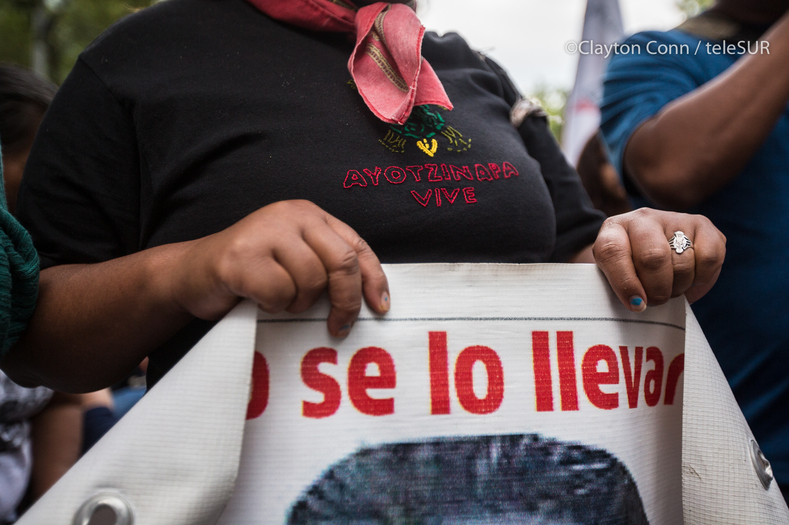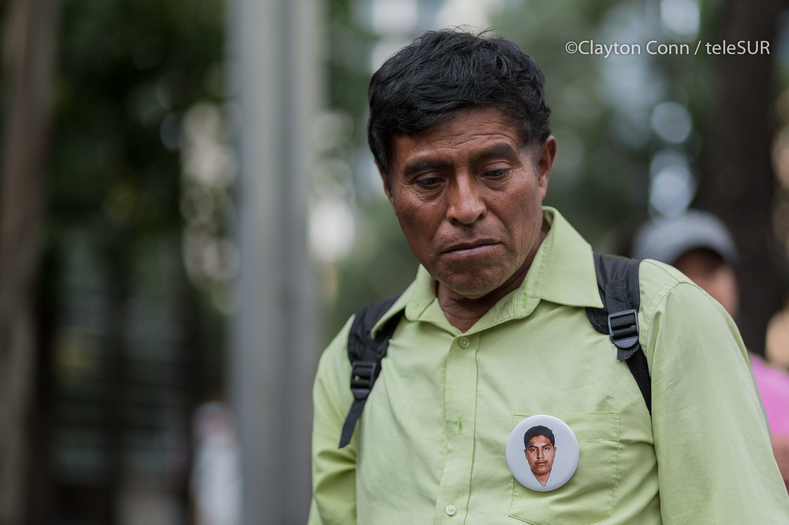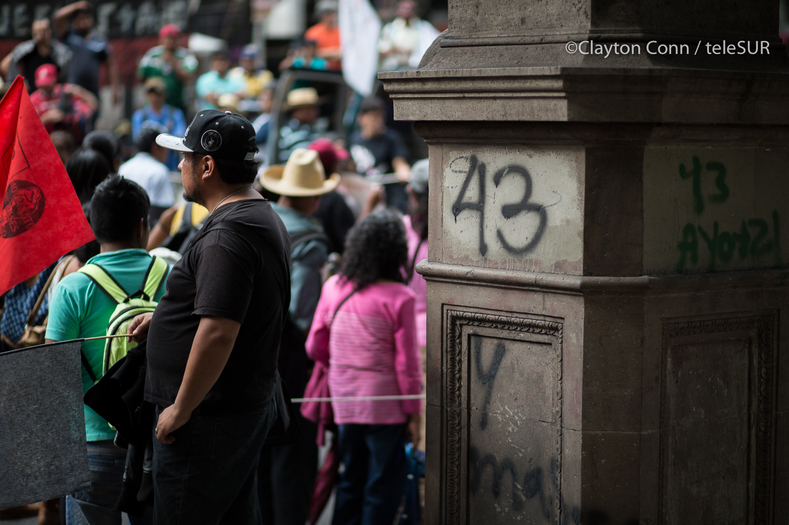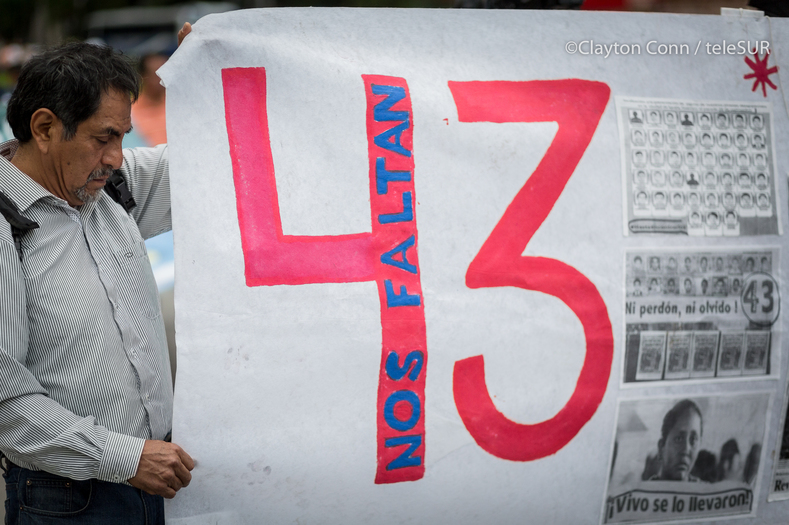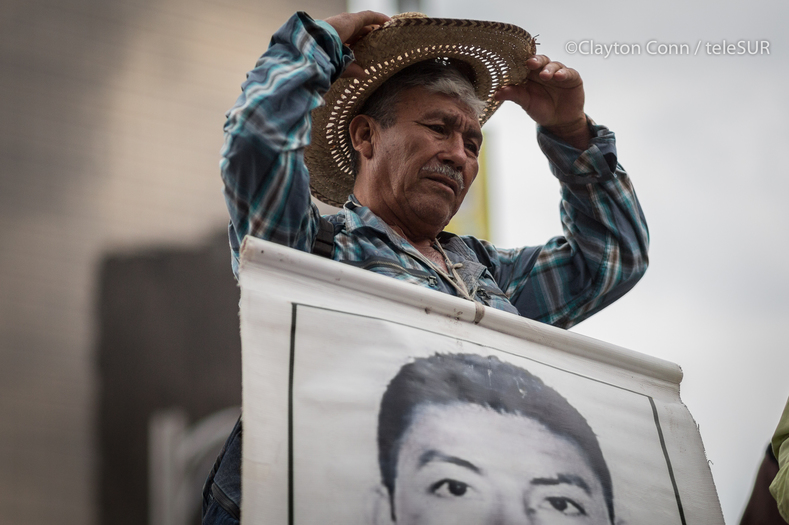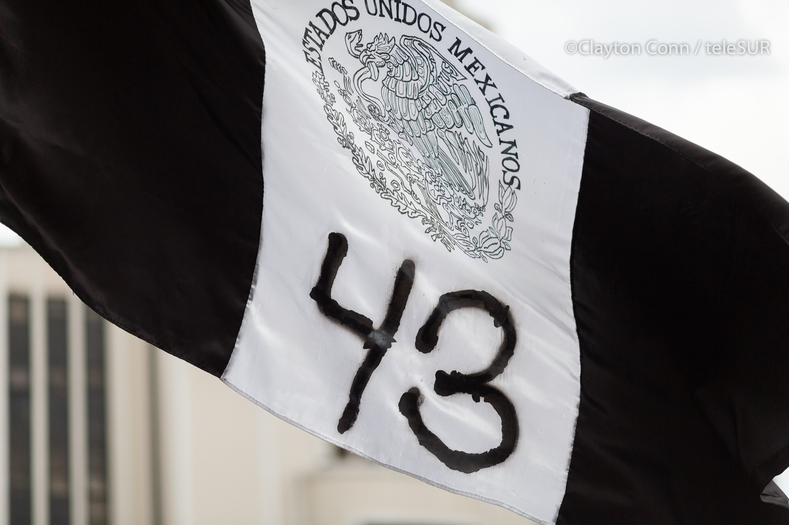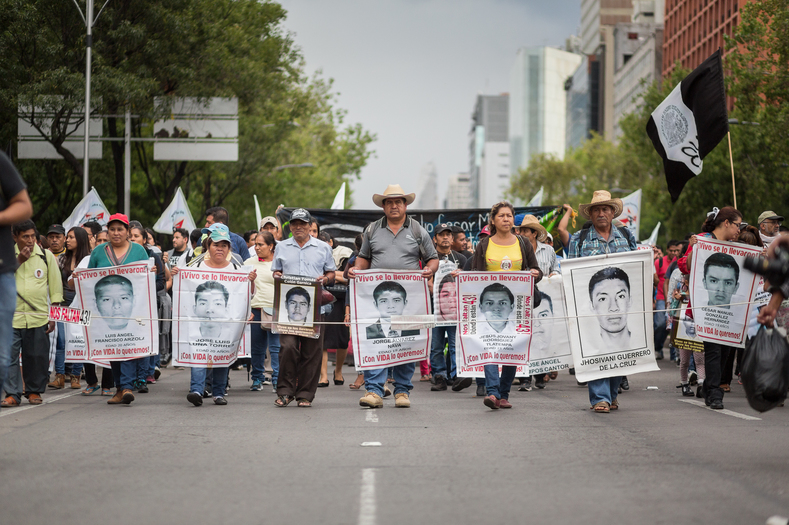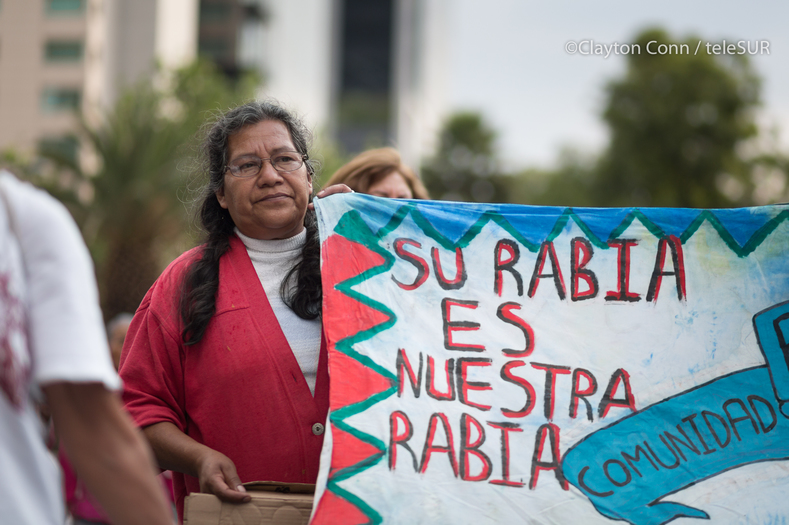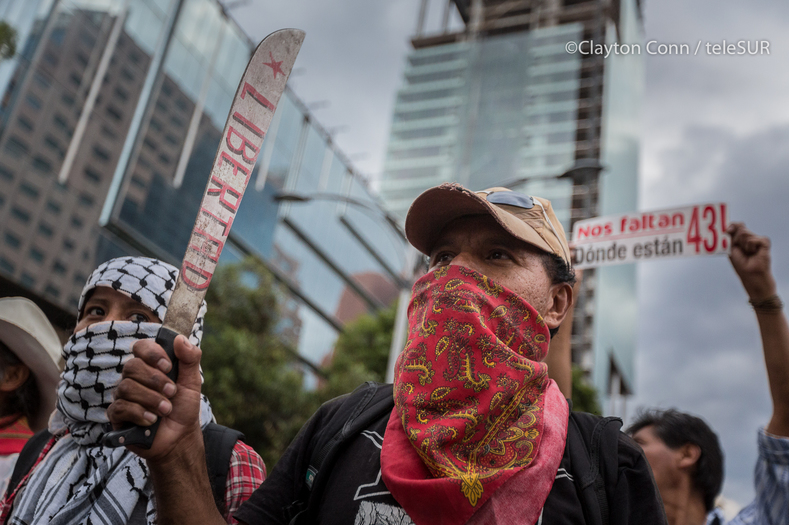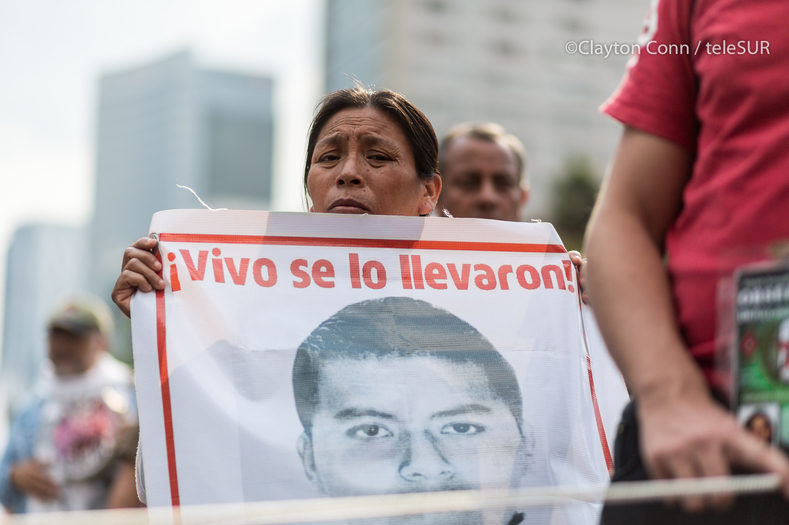It's been 22 months since police in Iguala, Guerrero, Mexico attacked and disappeared 43 students from the Raul Isidro Burgos Ayotzinapa Teachers’ Training College. The families of the youth and their supporters once again took the main avenues of the Mexican capital, Mexico City, to demand justice, truth and ultimately, the location of the students.
Although mass participation in the marches led by the Ayotzinapa families has dropped, many civil society organizations, communities and activists sympathize with the families and their demands. For many the case continues to be an “open wound.
Ayotzinapa has now become a symbolic case of Mexican government human rights abuses, extrajudicial murders and forced disappearances – and activists are also now pointing to the most recent case in which federal police are accused of extrajudicial murder of 12 protesters in Nochixtlan, Oaxaca on July 19th, 2016. The linkage between these incidents of state violence, along with the universality of state-supported injustice across the country's regions, have galvanized other social movement to express their solidarity and to continue issuing demands on behalf of their own communities' struggles.
teleSUR takes a look at the continued fight being waged by the parents of the 43, who continue to demand: "Alive they were taken, alive we want them back!"
 10
10 